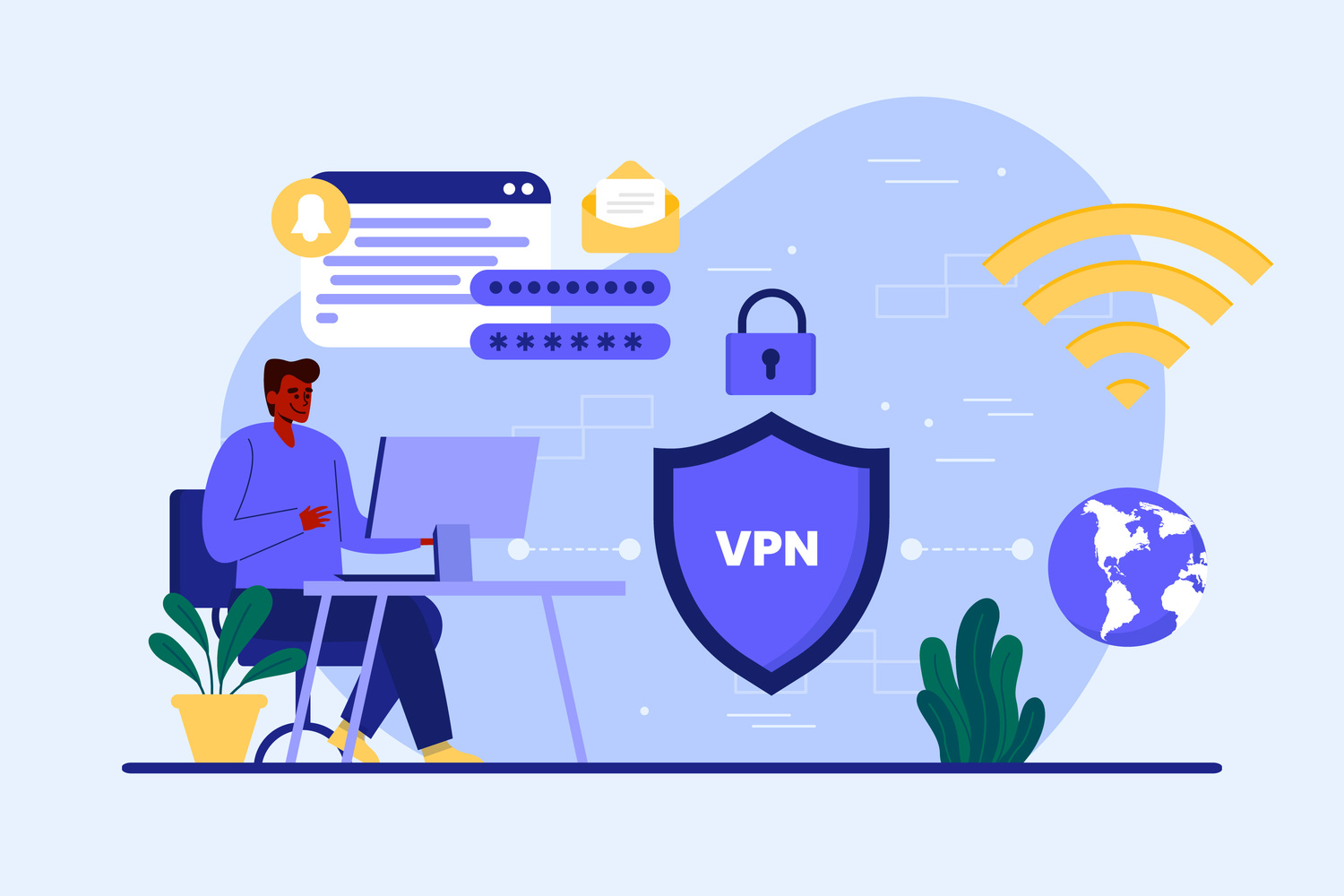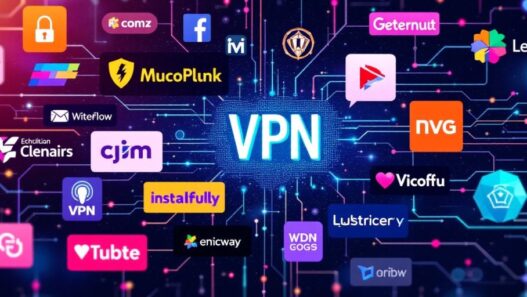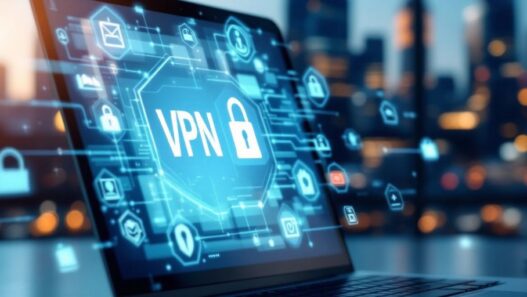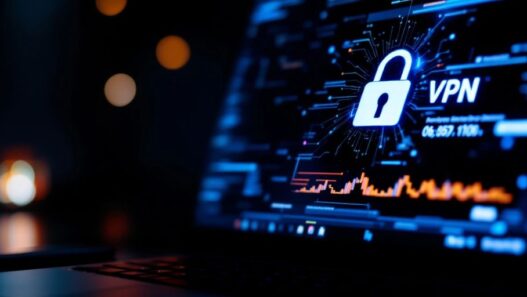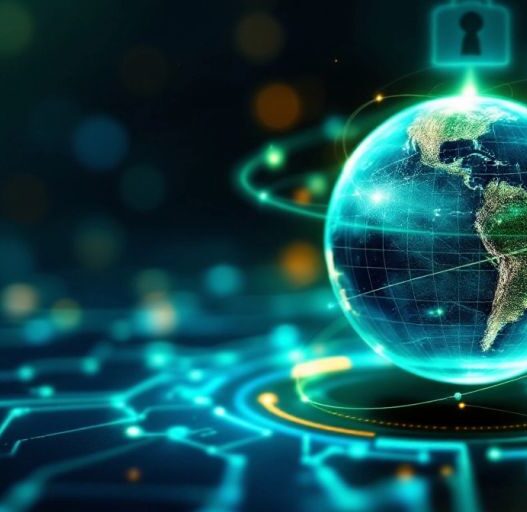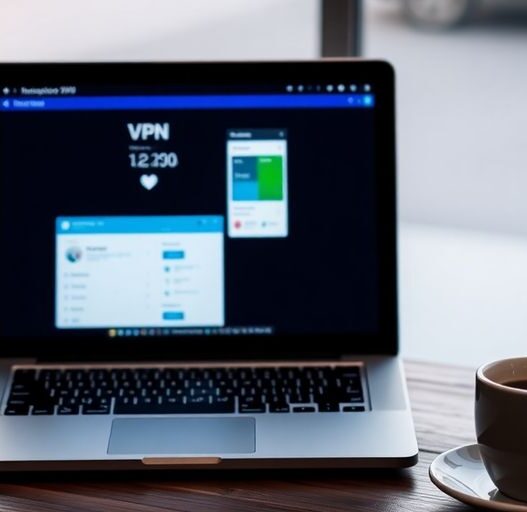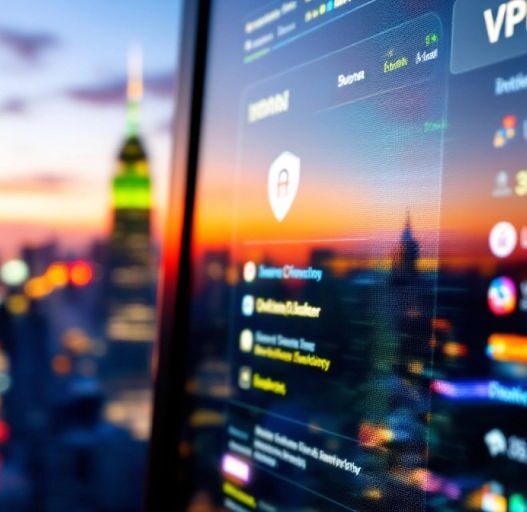In today’s digital age, businesses face numerous threats to their data and employee security. With the rise of cyberattacks, it has become essential for companies to adopt effective measures to protect their sensitive information. One of the most reliable solutions is using a Virtual Private Network (VPN). This article explores how VPNs can safeguard business data and enhance employee security, making them a must-have for modern enterprises.
Key Takeaways
- VPNs encrypt data, making it hard for hackers to access sensitive information.
- They provide secure access for remote workers, ensuring data safety from any location.
- Using a VPN on public Wi-Fi networks protects against cyber threats.
- VPNs help maintain employee privacy by masking their IP addresses.
- Investing in a VPN can lead to increased productivity and peace of mind for businesses.
The Importance of VPNs for Business Security
In today’s digital world, businesses face numerous threats to their sensitive information. Using a VPN for business is a crucial step in protecting both employees and data. VPNs, or Virtual Private Networks, create a secure connection over the internet, ensuring that data remains private and safe from prying eyes.
Understanding VPN Technology
VPN technology works by encrypting data and routing it through secure servers. This means that even if someone tries to intercept the data, they will only see scrambled information. This encryption is vital for businesses that handle sensitive data, such as customer information and financial records.
The Rise of Cyber Threats
With the increase in remote work and online transactions, cyber threats have also risen. Businesses are now more vulnerable to attacks from hackers and cybercriminals. A VPN helps mitigate these risks by providing a secure environment for data transmission.
Why VPNs Are Essential for Businesses
- Data Protection: VPNs encrypt data, making it unreadable to unauthorized users.
- Secure Remote Access: Employees can access company resources safely from anywhere.
- Anonymity: VPNs mask IP addresses, adding an extra layer of privacy.
| Feature | Benefit |
|---|---|
| Encryption | Protects data from interception |
| Remote Access | Enables secure work from any location |
| IP Masking | Hides user identity from potential threats |
In conclusion, investing in a reliable VPN service is essential for any business looking to safeguard its data and maintain employee security. Popular VPN services like PureVPN and NordVPN offer robust features that can help businesses stay secure. By implementing a VPN, companies can ensure that their sensitive information remains protected, fostering a safer work environment.
Protecting sensitive business data is not just a choice; it’s a necessity in today’s digital landscape.
Taking action now can save businesses from potential data breaches and the associated costs.
How VPNs Protect Sensitive Business Information

In today’s digital world, protecting sensitive business information is crucial. VPNs, or Virtual Private Networks, provide essential security features that help safeguard employee data and maintain confidentiality. They create a secure tunnel for data to travel through, ensuring that information remains private and protected from cyber threats.
Encryption and Data Confidentiality
VPNs use strong encryption methods to scramble data, making it unreadable to anyone who might intercept it. This means that even if hackers manage to access the data stream, they will only see a jumble of characters. Key points include:
- Confidentiality: Only authorized users can access the information.
- Data Integrity: VPNs ensure that data remains unchanged during transmission, preventing unauthorized alterations.
- Public Wi-Fi Protection: VPNs are especially important when using public Wi-Fi, which is often insecure.
Ensuring Data Integrity
Data integrity is vital for businesses. VPNs help ensure that the information sent and received is not tampered with. This is achieved through:
- Encryption protocols that protect data from being altered.
- Secure connections that maintain the original content of the data.
- Regular updates to encryption methods to stay ahead of potential threats.
Protection on Public Wi-Fi Networks
Public Wi-Fi networks can be dangerous for business operations. VPNs protect sensitive information by:
- Encrypting data traffic, making it invisible to snoopers.
- Allowing secure access to company resources while on the go.
- Providing peace of mind for employees working remotely.
IP Address Masking for Anonymity
VPNs also mask the IP addresses of devices, adding an extra layer of security. This helps in:
- Hiding the user’s location, making it harder for attackers to target specific devices.
- Preventing tracking by third parties, ensuring privacy.
- Enhancing security for employees accessing sensitive information from various locations.
VPNs are not just a tool; they are a necessity for businesses that want to protect their sensitive information and secure employee data.
In conclusion, VPNs are essential for businesses looking to protect sensitive information. They offer encryption, data integrity, and protection on public networks, making them a smart investment. For businesses considering a VPN, options like PureVPN and NordVPN provide robust features and excellent security. Investing in a VPN is a step towards ensuring the safety of your business data.
Securing Remote Access with VPNs

In today’s digital world, securing remote access is crucial for businesses. Virtual Private Networks (VPNs) provide a safe way for employees to connect to their company’s network from anywhere. This is especially important as more people work from home or on the go.
Remote Work and VPNs
Remote work has become common, and many employees need to access company data securely. A Corporate VPN allows workers to connect to the company’s network safely, even when using public Wi-Fi. This means that sensitive information remains protected from hackers.
Accessing Company Data Securely
Using a VPN, employees can access important files and applications without worrying about data theft. The VPN creates a secure tunnel for data to travel through, making it hard for anyone to intercept. Here are some key benefits of using a VPN for remote access:
- Encryption: All data sent and received is encrypted, keeping it safe from prying eyes.
- Secure Connections: Employees can connect to the company network from anywhere, ensuring they can work effectively.
- Protection on Public Wi-Fi: VPNs protect users when they connect to public networks, which are often less secure.
Mobile Device Security
With many employees using mobile devices, it’s essential to ensure these devices are secure. A VPN can protect data on smartphones and tablets, allowing employees to work from coffee shops or while traveling without fear of data breaches.
VPNs for Hybrid Workforces
As businesses adopt hybrid work models, VPNs become even more important. They allow employees to work from home or the office while keeping company data secure. This flexibility can lead to increased productivity and employee satisfaction.
Investing in a reliable VPN service is a smart move for any business looking to protect its data and employees.
In conclusion, using a VPN for remote work is not just a good idea; it’s essential. Businesses should consider top VPN services that offer strong security features and user-friendly interfaces. By doing so, they can ensure their employees have secure access to company resources, no matter where they are.
Additional Business Benefits of Using VPNs
In today’s digital world, businesses are increasingly turning to Business VPNs to enhance their security and efficiency. VPNs not only encrypt data but also offer several additional benefits that can significantly improve business operations.
Access Control and Authorization
- Enhanced Security: VPNs allow businesses to control who can access their networks. Only authorized users with the right credentials can connect, which helps protect sensitive information.
- User Management: IT teams can easily manage user access, ensuring that only the right people have access to critical data.
- Audit Trails: Many VPNs provide logs of user activity, which can help in monitoring and compliance.
Centralized Management
- Simplified Administration: Business VPNs often come with centralized management tools, making it easier for IT staff to oversee and manage connections across the organization.
- Streamlined Updates: Centralized systems allow for quicker updates and security patches, ensuring that all users are protected.
- User Support: IT can provide better support to users by having a clear view of who is connected and what resources they are accessing.
Cloud Security
- Secure Access to Cloud Services: As businesses increasingly rely on cloud services, VPNs provide an extra layer of security when accessing these resources.
- Data Encryption: VPNs encrypt data transfers between devices and cloud servers, protecting sensitive information from potential breaches.
- Compliance: Using a VPN can help businesses meet regulatory requirements for data protection when using cloud services.
Enhancing Employee Productivity
- Remote Work Flexibility: VPNs enable employees to work securely from anywhere, increasing productivity and job satisfaction.
- Access to Resources: Employees can access company resources without being physically present in the office, facilitating collaboration.
- Reduced Downtime: With secure connections, employees can work without interruptions, even when accessing sensitive data remotely.
Investing in a reliable VPN service not only protects your business data but also enhances overall productivity and efficiency.
In conclusion, the benefits of using a VPN extend beyond just security. They provide essential tools for access control, centralized management, cloud security, and improved employee productivity. Businesses looking to safeguard their data and enhance operations should consider implementing a Business VPN. By doing so, they can ensure a secure and efficient working environment.
Factors to Consider When Choosing a VPN for Your Business

When selecting a VPN for a business, it’s crucial to look beyond just speed. While speed is important, there are several other key factors that can significantly impact the security and efficiency of your operations.
Security Features
Choosing a VPN with strong security features is essential. Look for providers that offer:
- Advanced encryption protocols
- A proven track record of security
- Additional features like a kill switch to protect data during connection drops
Server Network Coverage
A wide network of servers is vital for ensuring that your business can operate smoothly from various locations. A larger server network allows for:
- Better performance and speed
- Access to geo-restricted content
- Flexibility for remote employees
Logging Policies
It’s important to select a VPN provider with a strict no-logging policy. This ensures that:
- Your data traffic is not stored or tracked
- Your business maintains privacy and confidentiality
- You can operate without the fear of data breaches
| Feature | Importance |
|---|---|
| Security Features | High |
| Server Network | Medium |
| Logging Policies | High |
A reliable VPN not only protects your data but also enhances your business’s overall security posture.
In conclusion, when choosing a VPN for your business, consider these factors carefully. Investing in a quality VPN can safeguard your sensitive information and provide peace of mind for your employees. Always prioritize security, server coverage, and privacy policies to ensure you make the best choice for your organization.
Challenges and Limitations of VPNs
While VPNs are a valuable tool for enhancing business security, they come with certain challenges and limitations that organizations must consider.
Potential Speed Reductions
One of the main drawbacks of using a VPN is the potential for slower internet speeds. This slowdown occurs because the encryption process adds extra data to the connection, which can impact download and browsing speeds. Here are some factors that can affect VPN speed:
- Internet connection quality: The speed of the internet connection directly influences VPN performance.
- Server distance: Connecting to a server that is far away can lead to increased latency.
- Encryption level: Higher levels of encryption can slow down the connection.
Compatibility Issues
VPNs may not work seamlessly with all applications or devices. Some common compatibility challenges include:
- Firewall restrictions: Certain firewalls may block VPN traffic, making it difficult to connect.
- Device limitations: Not all devices support VPN software, which can limit access for some employees.
- Software conflicts: VPNs can sometimes conflict with other security software, leading to connectivity issues.
Understanding VPN Limitations
While VPNs provide a layer of security, they are not a complete solution. Businesses should be aware of the following limitations:
- Malware protection: VPNs do not protect against malware; additional security measures are necessary.
- Data leaks: If not configured properly, VPNs can expose sensitive data through leaks.
- Dependence on internet connection: VPNs require a stable internet connection; any disruption can affect access.
In summary, while VPNs are essential for protecting sensitive business information, understanding their limitations is crucial for implementing a comprehensive security strategy. Organizations should consider using additional security tools alongside VPNs to ensure robust protection.
Final Thoughts on VPNs for Businesses
In today’s digital world, using a VPN is essential for any business. It not only protects sensitive data but also keeps your employees safe while they work online. With the rise in cyber threats, having a VPN can make a big difference in how secure your company is. By encrypting data and providing secure access to company resources, VPNs help prevent data breaches and maintain customer trust. Investing in a reliable VPN service is a smart move that can save your business from costly security issues in the future. Don’t wait—take action now to secure your business and its valuable information.
Frequently Asked Questions
What is a VPN and how does it work?
A VPN, or Virtual Private Network, creates a secure connection over the internet. It encrypts your data and hides your IP address, making your online activities private.
Why do businesses need VPNs?
Businesses need VPNs to protect sensitive information, especially when employees work remotely or use public Wi-Fi. It helps keep data safe from hackers.
Can a VPN slow down my internet speed?
Yes, using a VPN can sometimes slow down your internet. This happens because your data has to travel further to reach the VPN server before going to its final destination.
Are all VPNs the same?
No, not all VPNs are the same. They differ in features like security levels, server locations, and costs. It’s important to choose one that fits your business needs.
Is it safe to use a VPN on public Wi-Fi?
Yes, using a VPN on public Wi-Fi is safe. It encrypts your data, making it hard for hackers to steal your information while you’re connected.
What should I look for when choosing a VPN?
When choosing a VPN, consider security features, server locations, logging policies, and cost. Make sure it meets your business requirements.
